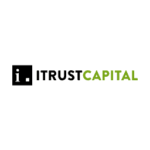Blockchain has gone from an underpinning technology for altcoins such as bitcoin to one of the biggest buzzwords in tech and finance.
Companies are throwing it into their names to bolster their stock price, they’re announcing initiatives to incorporate it into their offerings, and it’s being worked into products that have nothing to do with finance. But brushing aside the hype, you find a powerful, useful technology worth being informed about as an investor.
What Is Blockchain?
To understand blockchain, you need to understand how altcoins work. Any altcoin is a network of computing stations, which can be anything with a processor. Each station is a “node,” and the work of running the altcoin operation is shared across the entire network. The main question, since so much money is in play: How do you keep an individual node honest?
That’s where blockchain comes in. A blockchain is a giant public ledger where every node in the network gets a copy of it. Every time something is done with an altcoin, whether it’s mined, minted, traded, sold or bought, it’s entered on the blockchain. For any trading activity to happen, both sides of the transactions need blockchains that match exactly. If they don’t, the trade doesn’t go through.
It’s a useful solution for altcoins, which are a decentralized currency without a reserve system, government issuer, or anybody else beyond the network to keep transactions honest. Instead of needing a separate authority, everybody involved has the job of enforcement, which is automated. But as you can see, blockchain is useful well beyond that.
How Can Blockchain Be Used?
Blockchain intrigues a huge number of businesses because it’s a useful solution to some thorny problems. Let’s say you’re a shipping business concerned about potential smuggling. You could use blockchain systems to create an unbreakable, unforgeable system for tracking every container, in which each container receives a secure token. If a container on your ship doesn’t have a token, or the token doesn’t match the blockchain that’s been entered across the entire network, you know something’s wrong and can contact the authorities. It’s easy to fake paperwork on a clipboard, but much harder to fake a ledger with a million copies anybody can check.
Really, any business with an extensive network and something it wants a transparent ledger for can make use of blockchain. There are blockchains being developed for everything from legal documents where knowing who has custody of which document when is crucial for assembling timelines during trials, to food companies that want to track how their food is sourced.
Of course, it’s early days for the technology, and there are plenty of would-be applications that investors might want to consider the practicality of. And in some cases, blockchain won’t have any material impact on asset prices; it’ll simply be a behind-the-scenes upgrade for companies to prevent illicit activity, keep better track of logistics, and a host of other uses. Still, it’s a technology worth being familiar with, even if you’ve got no intention of opening a bitcoin checking account.






